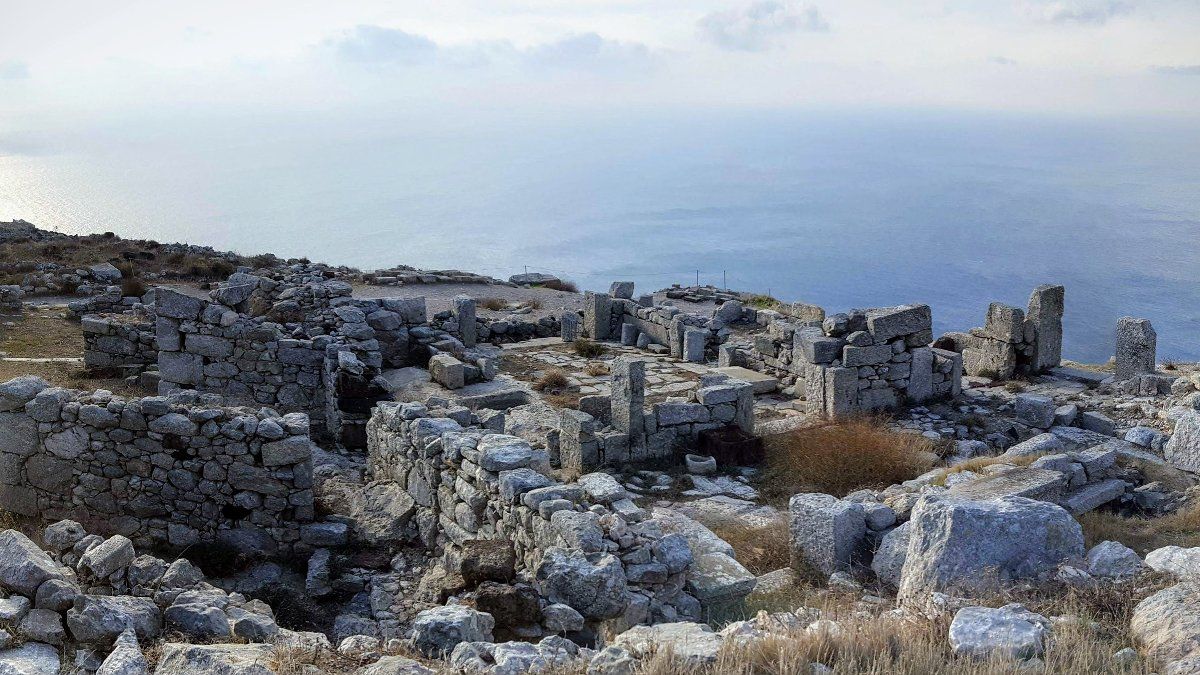On this episode, we discuss the Myth of Atlantis that comes down to us from one of Plato's dialogues, the Timaeus. Here, we attempt to separate fact from fiction, exploring whether the Atlantis myth may be a fictionalized tale of a real natural disaster—such as the devastation of the Minoan civilization on Crete by a tsunami more than 3,500 years ago.
We also explore whether the myth of Atlantis could be recounting some ancient memory of the hypothesized Younger Dryas impact that may have devastated various regions of Earth over 12,000 years ago.
Listen in your browser or click to download (Save as)
This episode is also available on Spotify, Apple Podcasts, and just about anywhere else you get your podcasts from.
Timestamps:
- 0:00 - On Volcanoes, Earthquakes, and Tsunamis
- 5:58 - Prehistoric humans and natural disasters
- 14:45 - How the Atlantis myth came to us via Plato
- 24:21 - Plato cites cyclical disasters that wipe out human knowledge
- 33:00 - Disasters that may have inspired the Atlantis myth
- 43:44 - The myth of Atlantis and the Younger Dryas impact
- 52:46 - Are our myths a form of cultural memory of past traumas?
Recap:
- I kick off this episode recalling times in my childhood when I was made very aware of natural disasters: particularly volcanoes, earthquakes, and tsunamis. I conclude that natural disasters such as these have always plagued humanity: particularly tsunamis.
- I discuss how for prehistoric humans navigating along coastlines, tsunamis would have represented the greatest threat from the natural world. Cultures that would have warned their decedents through flood myths would have had a higher chance of avoiding being swallowed by the sea, which may explain why so many different cultures around the world have some sort of flood mythology as part of their cultural lexicon.
- From here, we jump into the origins of the Myth of Atlantis as recounted by Plato. In the Timaeus, an Egyptian priest claims that human civilizations are often wiped out by great disasters, and all of their accumulated knowledge and wisdom is lost. This is a fascinating idea: that even in Plato's time, before archaeology existed, this idea of there being lost ancient civilizations was being discussed.
- We take a look at two possible disasters that may have inspired the Atlantis myth: one that was contemporary with Plato, in the disaster at the Greek city of Helike. And another that happened about 1,000 years prior, when a massive volcano erupted on Santorini and sent a tsunami rushing towards the island kingdom of the Minoans, based on modern-day Crete.
- After looking at the Atlantis myth, we go a little bit further: forging a possible connection between this idea of the lost ancient city of Atlantis and the hypothesized Younger Dryas impact around 10,800 BC. For comparison, Plato places the sinking of Atlantis around 9,600 BC.
- We ponder whether ancient myths such as that of Atlantis may be some form of cultural memory of past events, particularly natural disasters such as what befell the Minoans. It could be that while a kingdom called "Atlantis" never existed, Plato's fable is in fact recounting how many human civilizations have been destroyed throughout history as a result of great cataclysms.
Works Cited:
- Plato, Timaeus and Critias. Oxford University Press 2008. Translated by Robin Waterfield.




